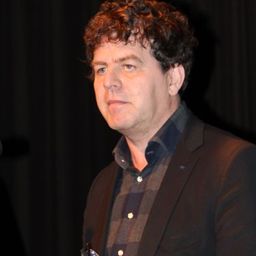Heritage and Liminality: Cross-Cultural and Inter Disciplinary Perspectives on Liminality and Cultural Heritage
Mon statut pour la session
Various individuals, groups, institutions and even countries can create, attempt to control or contest liminality. Examining heritage in light of liminality can pertain to interrogating notions of transition, boundary and border zones and their manifestations and constructions as well as the actors who construct them and their possible intentions in both quotidian and exceptional times. Additionally, new insights may be drawn about understanding spatial and temporal transitions between heritage sites and landscapes and spaces of everyday life or the structure of experiencing a heritage place. In coupling liminality and heritage, the session ultimately pursues a two-fold objective: to develop a better or different understanding of heritage through the use of liminality, and to explore the potential contribution of heritage to understandings of liminality in the present.
Authors are invited to analyze the relationships between heritage and liminality in their multiple forms. The session cuts through a number of conference themes and welcomes papers from multiple disciplines including geography, architecture, anthropology, sociology, tourism studies and politics. Both theoretical and case-based studies with theoretical implications will be considered.
Possible topics of investigation include but are not limited to the following interrelated aspects:
1. Time and temporality – how thresholds and liminal zones change over time and how is the transition experienced by various groups and/or individuals?
• What are the temporal qualities of thresholds in relation to places?
• What are the temporal differences between liminal zones and their immediate surroundings?
• How, when and by whom are they constructed as thresholds?
• How do thresholds and transitions transform in time and what are the causes for their transformation?
• How is the question of time related to other tangible or intangible aspects of experiencing heritage?
2. Narrative
• What are the narratives of entering/transitioning for various groups of people?
• How are experiences narrated on a quotidian basis and how does that narrative differ in other times?
• At a more local scale, what are the various narratives of entering, border zones and thresholds and how do they interact?
Performance
• How, when and why are transitions performed?
• What kind of performances and actions create, keep or dissolve a liminal state at various scales: in relation to a locale (as in entering and exiting) or in a set of intangible institutional structures that operate at multiple scales?
3. Place
• How is liminality created, controlled or contested in place?
• Who are the actors (individuals, collectives or institutions) who create or resist liminality?
4. Embodiment and concretization
• What are the symbolic (visual, structural and other forms) markers of such zones?
• How do they appear and how are they constructed in their settings (urban, architectural, landscape)?
• How does historical transformation of the setting influence the construction of a liminal zone and vice versa?
A selection of papers will be considered for inclusion in an academic publication.
Sous sessions
In this paper, a new, encompassing definition of heritage is proposed. Firstly the building blocks for the new, overarching definition of heritage are introduced. Considering the limitations of the notion of (reliable) “sources” cherished by historians, the concept of transsources is proposed as a new core concept. It is closely linked to the notion of parasources, up to now described as metadata, but that concept should be expanded. The expansion is inspired by a repertoire of concepts li...
Expanding the literature on themed environments by drawing from the discourse on authenticity in tourism practices, this paper will explore the ways in which people attach meanings to transplanted heritage. Liminality has a crucial role in this process, as the conscious transient experience of the pastness informs the users’ construction of existentially authentic feelings. Over the last three decades, heritage has become understood as a ubiquitous phenomenon that serves economic...
Incorporating “place” (Burra Charter) into cultural heritage studies promotes deeper deconstruction of “authenticity” and enrichments of local cultural meaning of heritage. Heritage, not only as a driving force, but also as cultural faith and values, has been engaged in negotiation of urban development in the Chinese past with polyphonic writing of history, space, and language in historic documents. Utilizing data from historical-ethnographic fieldwork of Sansheng Liubu (三省六部, the governme...
There is a broad consensus in heritage studies according to which heritage is understood as a socio-cultural process. In part, this is the result of a critical appraisal of previous attitudes that confined heritage mostly to objects at the expense of other social, cultural, and individual processes. Accordingly the place of human experience and performance over material objecthood is acknowledged. Following this shift and in more recent years there has been a growing attention to developin...
Pasargadae is the symbolic capital of the Persian Empire (est. 580 BCE) and one of the most significant World Heritage sites in Iran (listed 2004). Since its inception, the site has had multiple layers of occupation and different functions including Royal garden-capital, religious shrine and national monumental site. In all its functions, the site has remained heterotopic, at the margins of the everyday. And yet throughout its history, various modes of settlement have appeared around the s...
In this paper, I will discuss one of a number of contested heritage sites in Istanbul that have been extensively analyzed in articles and in the press, which examine these sites either in relation to the formation of social movements in response to an erosion of the “right to the city,” or in relation to the question of contested heritage, both tangible and intangible. Here, however, I will discuss such sites in relation to the liminal condition they engender. From the late 1990s, the Ista...
In the last fifty years, Ancient Near Eastern archaeologists have adapted modern sociologists like Weber and modern geographers such as Christaller to promulgate a model of ancient polities as centralized, bureaucratic states. In contrast, the peripheries of ancient states are often considered marginal both in space and in importance. The concept of liminality allows archaeologists to redress some of the imbalance by considering how contested peripheries can generate new forms of political...
This paper will provide a structured examination of implied symbolic and functional liminal qualities of porches and similar features of heritage buildings and sites. The primary goal will be to provide a basis for making critical assessments of related intangible factors of potential significance associated with porch-like features of heritage buildings and archaeological sites. Presentation topics will include an examination of how these porch-like features have long served as extended t...


